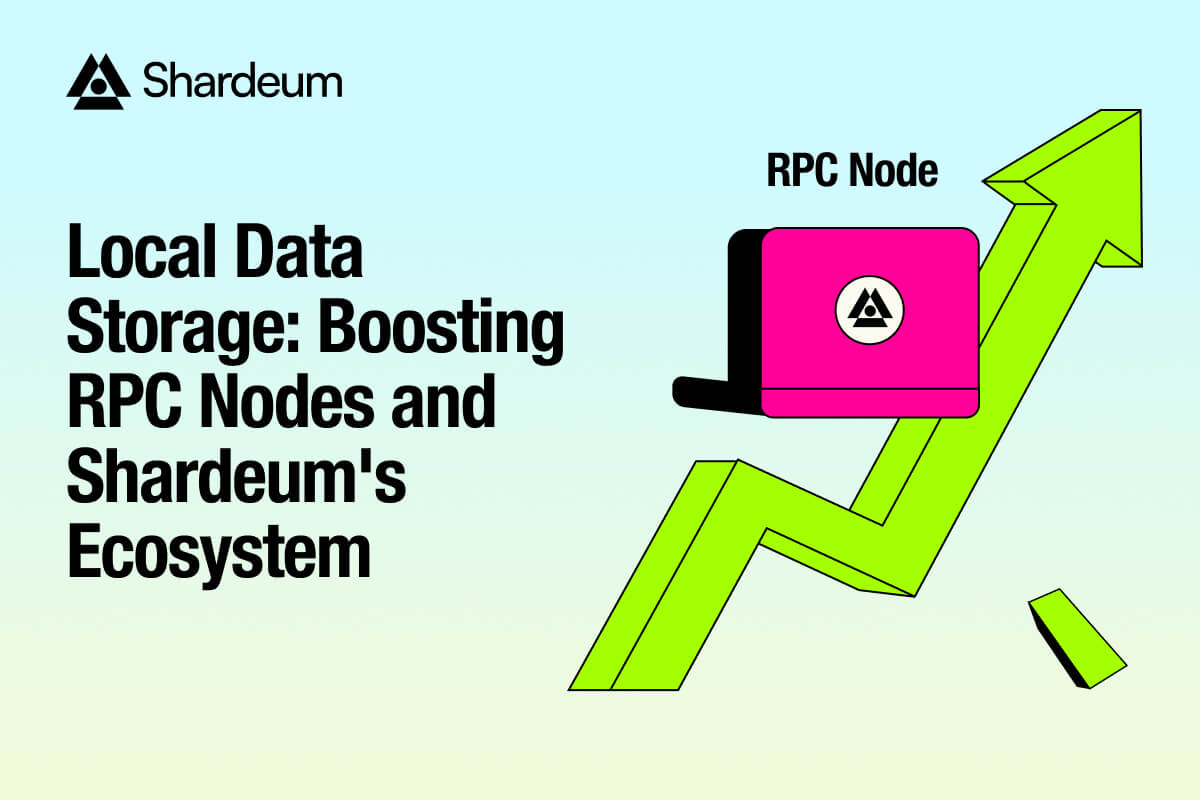
Local Data Storage: Boosting RPC Nodes and Shardeum’s Ecosystem
Explore how Shardeum boosts RPC nodes and overall network performance with its local data storage, promoting speed, security, and...

Explore how Shardeum boosts RPC nodes and overall network performance with its local data storage, promoting speed, security, and...
Greetings! This blog uncovers another another major milestone we reached in late 2023 that’s sure to supercharge your Shardeum experience! ???? Our tech wizards have successfully rolled out the RPC server local data upgrade. What does this mean for our network? It’s simple: no more network stress when our RPC nodes (also called connector nodes on Shardeum) are on duty—data storage has gone local, and RPC nodes are loving it!! Keeping reading 🙂
Shardeum employs a system of Remote Procedure Call (RPC) nodes. In Shardeum’s framework, an RPC node, also referred to as a connector node, serves as a link, facilitating communication between external clients like wallets and the Shardeum network. These connector nodes provide an interface through which decentralized applications, among others, can send requests and receive responses. This in turn allows external clients to interact with, access, and retrieve data from distributed ledgers like Shardeum. For instance, a client like MetaMask can send a transaction request to the network. This request is initially received by the connector node, which then forwards it to a specific set of network nodes, ensuring efficient retrieval of the required information.
Think of connector nodes as the diligent postal workers, working around-the-clock to deliver your transactions and queries without a hitch. Their job is crucial: ensuring that every interaction with our blockchain is smooth, secure, and speedy. And now, with local data storage, they’re equipped to serve you even better!
Before this monumental upgrade, RPC nodes heavily depended on validators for data. Validators, the robust pillars of our network, are primarily tasked with finalizing transactions. However, they also served a secondary role, responding to data queries like balance checks. This dual responsibility led to a significant strain, especially when network activity peaked. Validators had to limit these data services to prioritize transaction processing, often resulting in RPC nodes exhausting their resources and users experiencing delays or incomplete information.
Our breakthrough solution? Decoupling data services from validators and shifting this responsibility to archivers (and relayers). Archivers, the cornerstone of our network, are designed to handle heavy data loads. By rerouting RPC data requests to these archivers, we significantly reduce the burden on validators, allowing them to focus on their primary role while enabling the RPC nodes with locally available data (which they get from archivers). Another win not only for developers building on Shardeum but also for its ecosystem! Hurray!
The core of this update lies in the strategic shift of data queries from validators to archivers. This move has multiple benefits – both for the RPC servers and Shardeum’s ecosystem.
And there we have it! From understanding the critical role of connector nodes to the local data implementation vis-a-vis Shardeum’s archive nodes, we’ve traveled quite the distance together. We’ve seen how our network has evolved, strengthening not just in infrastructure but in spirit, thanks to you, our community. Remember, each step we take is a step towards a more robust, reliable, and radiant Shardeum. Until next time 🌟🚀